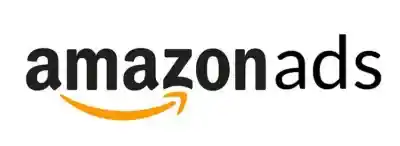What is a Deal ID?
Deal ID is a unique identifier that facilitates transactional clarity and specificity within the digital advertising ecosystem, especially in private marketplaces (PMPs). Think of it as a digital handshake, a token that represents the pre-agreed terms between an advertiser and a publisher. Typically 8 to 19 characters long, think of it is a hook which is passed from SSP to DSP in Programmatic Advertising to streamline the buying and selling process.
How do Deal IDs work?
When an advertiser expresses interest in purchasing premium ad inventory from a specific network or publisher, they generate a Deal ID in their SSP or Ad Server. This unique identifier encompasses the terms, price, and other specifics of the deal. The Deal ID ensures that both parties understand and abide by the stipulations set for the transaction.
What exactly is a Deal ID?
Whilst a Deal ID can something like 162548265268 it is more than just a unique token. It represents a bridge between advertisers and publishers in the programmatic space, ensuring that ad inventory is sold and displayed as per the pre-decided conditions. This might include criteria such as ad format, audience targeting parameters, placement, and pricing. It provides a safeguard against any discrepancies or misunderstandings that might arise during the real-time bidding process.
Types of Deal ID Criteria
A Deal ID serves as a comprehensive reflection of the negotiated terms between advertisers and publishers. It ensures that every aspect of a programmatic deal is captured in detail. Here are the integral components that typically define a Deal ID:
1. Ad Inventory
This component delves into the specifics of the available ad inventory and media type. It could be Display, Video or Native. It specifies the dimensions of the ad units, such as 300×250 or 728×90. Additionally, it identifies the ad placements on a website, whether it’s on the homepage, an article page, or elsewhere.
2. Pricing Details
The pricing aspect of the deal is articulated here. This could range from base bid prices to predetermined fixed rates, and even to unique pricing agreements that both parties arrive at during their negotiations.
3. Targeting Criteria
A pivotal component, this specifies the precise audience the advertiser intends to reach. It can be as broad as a geographical location or as detailed as specific user behaviors, interests, and demographic profiles. This could include anything like Above the Fold, Viewability Standard, Viewability Metric, Video Completion Rate.
4. Duration of the Deal
Every ad campaign has a start and an end and so can an Deal ID (although you can have open ended or evergreen deals) This component sets out the exact timeline for the ad campaign, ensuring that the advertisement is live during the agreed-upon period.
5. Volume Commitments:
In some deals, there’s a commitment on the number of impressions either the daily volumes or monthly. This section outlines any minimum or maximum viewability counts or impressions that are part of the agreement.
6. Technology Platforms:
Every programmatic deal involves technological platforms. Some adverrtiser or publishers have specific needs for example a publisher might only have Data in a specific SSP. This component identifies the platforms in play, such as DSPs, SSPs, or other ad tech entities.
7. Data Sharing Agreements
Modern advertising often involves data sharing. Here, any agreement to exchange data, such as audience metrics or insights, between the parties is detailed.
8. Deal Prioritization:
Not all deals are equal. Some are prioritized over others in the ad auction ecosystem. This component defines where the deal stands in terms of priority in the ad exchange landscape.
9. Day Time Parting:
Ads aren’t always shown throughout the day. This section details the specific times or days the ad should be visible. It allows for strategic ad placements, ensuring optimal viewer engagement. Advertiser just might want to run the deal between 9am-5pm Monday to Friday.
Special Conditions or Caveats:
Every deal is unique. This component captures any special conditions, requirements, or stipulations that might not fit the standard criteria but are essential for the specific deal in question.
What DSPs support Deal ID?
Most modern Demand Side Platforms (DSPs) recognize and incorporate Deal IDs, reflecting their rising significance in the realm of programmatic advertising. As both advertisers and publishers yearn for heightened precision and autonomy in their dealings, the adoption of Deal IDs has become increasingly paramount. Renowned platforms such as Xandr Invest, DV360, The Trade Desk, Amazon DSP, Basis DSP, Adobe Advertising Cloud, Criteo, Adform, StackAdapt, Yahoo DSP, Adelphic, Amobee, Adroll, Choozle, Quantcast, Roku, Beeswax, and Simpli.fi have all seamlessly integrated Deal ID capabilities, underscoring its indispensable role in shaping the current digital advertising terrain.
Types of Deal ID
In the ever-evolving realm of programmatic advertising, Deal IDs come in various types to cater to different advertising needs. While the core principle remains consistent – a unique identifier for tailor-made agreements – the application varies.
Programmatic Direct Deals
In the world of programmatic advertising, Direct Deals hold a significant position. Here, advertisers work directly with publishers, sidestepping many of the complexities often associated with larger, more public auction environments. Using Deal IDs in this setup facilitates a straightforward transaction mechanism. Advertisers can either bid on or outright purchase particular ad spaces they find attractive. The utilization of Deal IDs ensures that both parties are aligned in terms of their requirements and expectations.
Programmatic Guaranteed Deals
Taking a slightly different approach from Direct Deals, Programmatic Guaranteed Deals provide advertisers with a broader view of the advertising landscape. They are presented with all available ad spaces, granting them the liberty to select whichever matches their advertising objectives. In this scenario, Deal IDs play a pivotal role. While they streamline the overall process in Direct Deals, in Guaranteed Deals, Deal IDs serve as a beacon, guiding advertisers through a myriad of options, ensuring they align perfectly with their predefined criteria.
What is an example of Deal ID?
Deal IDs provide bespoke advertising solutions tailored to specific needs, ensuring that content reaches the most suitable audience. Let’s explore a couple of real-world scenarios that elucidate the practical application of Deal IDs across diverse media types:
- Display Ads for Food Advertisers: Consider a prominent food advertiser eager to engage individuals immersed in online recipes. They wish to showcase their product or service through a 300×250 Display Ad, possibly featuring a unique dish or an innovative cooking tool. To guarantee that their ad reaches genuine cooking enthusiasts, they coordinate with publishers renowned for their culinary content. This would be locked in via a Deal ID.
- Video Ads for Supermarket Campaigns: A leading supermarket chain aiming to broaden its consumer base. They’ve produced a captivating 30-second video ad, perhaps highlighting exclusive offers or showcasing fresh produce. Their target? Potential customers who aren’t yet members of their loyalty program. They want to secure the inventory with this specific demographic, video placement, viewer demographics, and budget. This would be locked in via a Deal ID.
The Advantages of buying via a Deal ID
- Precision & Transparency: Deal IDs allow for precise targeting, ensuring ads reach the intended audience based on the pre-decided criteria.
- Cost Efficiency: Advertisers often get value for money as they are only paying for ad placements that strictly adhere to their requirements.
- Better Relationships: Publishers and advertisers can foster stronger working relationships, thanks to the clarity and specificity that Deal IDs offer.
- Streamlined Workflow: Deal IDs simplify the transaction process by encapsulating all terms in one identifier, reducing the potential for disputes or miscommunications.
- Exclusivity: In some cases, publishers might offer unique ad placements or opportunities only accessible via specific Deal IDs, giving advertisers exclusive access to premium inventory.
Potential challenges when buying with Deal ID?
While Deal IDs undeniably offer enhanced precision and customization in programmatic advertising, they can also come with their set of challenges:
- Complex Negotiations: Crafting a Deal ID necessitates meticulous discussions between advertisers and publishers. Ensuring that every aspect of the deal aligns with both parties’ expectations can be a protracted process, potentially delaying campaigns.
- Limited Flexibility: Once a Deal ID is established, its terms are typically set in stone. This can be restrictive if market conditions change or if there’s a need to pivot the campaign strategy mid-way.
- Technical Glitches: On the technical front, misconfigurations or compatibility issues between DSPs and SSPs can lead to Deal IDs not functioning as intended, disrupting the seamless flow of transactions.
- Transparency Concerns: While Deal IDs offer tailored advertising opportunities, they might sometimes lack the transparency seen in open auctions. Not all details of the deal may be visible, making it challenging for advertisers to gauge their campaign’s full potential.
- Potential for Overpayment: Given the bespoke nature of Deal ID transactions, advertisers might end up paying a premium for certain placements or audience segments. Without the competitive landscape of open auctions, there’s a risk of not achieving optimal cost-efficiency.
- Scalability Issues: While Deal IDs excel in specificity, they might not always offer the vast reach that some campaigns require. Relying solely on Deal IDs might limit the exposure to broader audience segments.
« Back to Programmatic Glossary Index
Food Targeting Categories
Since 2008, Gourmet Ads has been the global leader in food-focused advertising, specializing in Contextual Targeting. Discover a wide range of Food Targeting Categories for your next advertising campaign or programmatic deals, including Alcohol, Beverage, Cuisine, Diet, Ingredient, Kitchen Appliances, Non-Endemic, Publisher, and Recipe Targeting. We ensure your brand resonates with an engaged, culinary-inclined audience, transforming advertising campaigns into deliciously successful endeavors. Experience Gourmet Ads—where your message meets the appetite of your desired market.
Let’s Get Started !
Let the Gourmet Ads team walk you through all the options available to ensure that your Food, Supermarket, Beverage or Kitchen advertising campaign has the best possible combination of Premium Guaranteed Inventory, Scale, First Party Data, Contextual Targeting and Programmatic Advertising elements.















